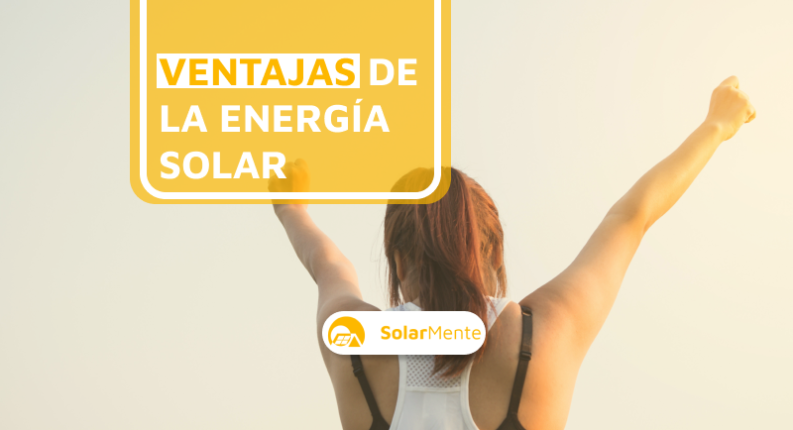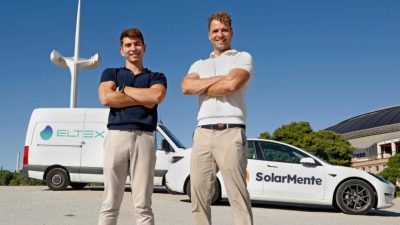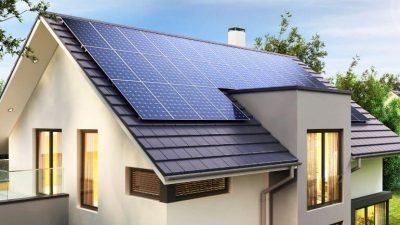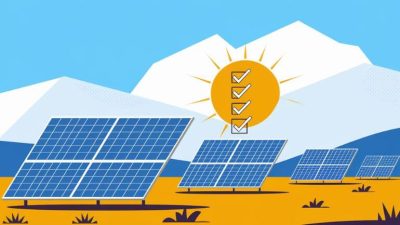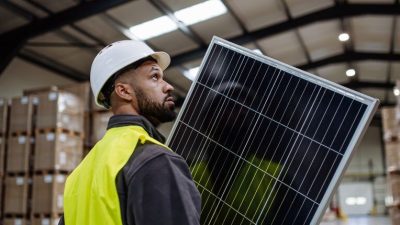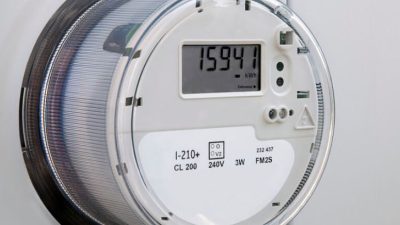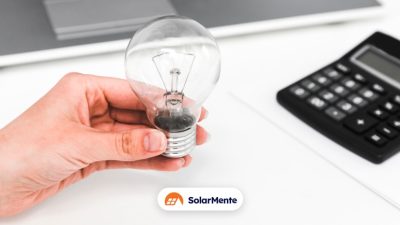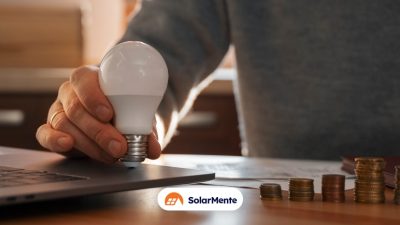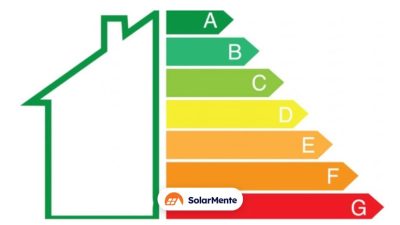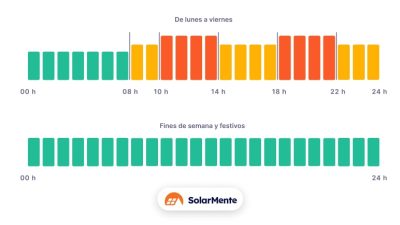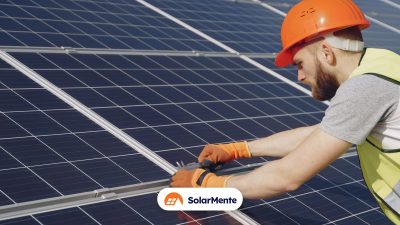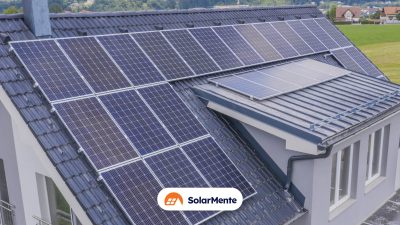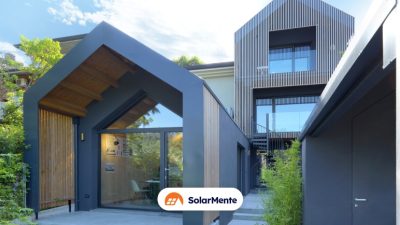In this article, we will look at the social, economic and environmental advantages and disadvantages of solar energy.
The benefits of solar energy: what it can offer you
- It is valid for any geographical area where there is sunshine.
- It provides more independence from the electricity grid and natural gas.
- It is economical (so much so that it is free) and 100% inexhaustible.
- It is a renewable and clean source of energy.
- 90% of the panel materials can be recycled.
- The installation of solar panels is simple.
- They are silent and their useful life can exceed 20 years.
- The design of the panels does not affect or clash with the outside environment, bearing in mind that most of them are installed on the roofs of buildings or private homes for residential use.
- It generates wealth and local employment. According to a report published by ScienceDirect, we could reach 22 million jobs in the photovoltaic sector by 2050.
- It can also produce passive solar energy.
- The value of a home is increased when it has a photovoltaic self-consumption system.
The advantages of solar energy in Spain: here are 4 relevant points
However, here are 4 advantages of solar energy to enjoy self-consumption in Spain. Here you have the singularities that make the territory a great opportunity:
1. Significant energy savings
Yes, you reduce the consumption of your home, but it is of little use because your monthly bill remains the same or, as has happened in many cases, it has risen.
We cannot control these fluctuations, but what we can do is switch to an energy source that does not leave our pockets clean at the end of the month.
And that renewable source is called solar energy. It is free and inexhaustible, you will only have to make an initial investment and, for this, there are subsidies that encourage self-consumption that facilitate the purchase. However, our solar subscription model allows you to switch to clean energy by investing 0 euros. You will only have to pay a small monthly fee as you do with Netflix or similar platforms. Believe us this will save you a lot more.
In addition, all the energy produced that you have not been able to consume, will have an economic compensation for those surpluses, coming from your electricity company as long as you maintain the connection to the grid.
2. High photovoltaic production
3. More energy independence
4. Your home will increase in value
The disadvantages of solar energy
- The initial investment you have to make. It is true that they can be amortised in less than 8 years in geographical areas with good solar irradiation, but the initial amount is not low. Remember that there are grants and subsidies for self-consumption or solar subscription models that reduce the entry barrier without the need to make a high investment.
- The characteristics of the roof influence the installation of the photovoltaic system. Not all roofs are suitable for self-consumption.
- It does not produce energy at night because the sun is not present, but you can take advantage of the daytime production during those hours if you have an isolated storage system with solar batteries.
- Weather dependency, but don’t forget that it still works in winter or on cloudy days even if the hours of sunshine decrease.
- The manufacturing of panels does not emit zero emissions, but it is hardly a relevant percentage. Moreover, they can be recycled and solar energy does not pollute.
Photovoltaic and thermal solar energy: which has the greatest advantages?
- Photovoltaic. The sunlight received makes it possible to generate 100% clean and renewable electricity through solar panels.
- Thermal. Absorbs light from the sun and transforms it into heat energy. It is generally used to heat water and heating.
- Uses and applications. As mentioned above, photovoltaics have multiple applications for both residential and public use.
- Thermal system equipment has a maximum lifetime of 10 years, while solar panels can produce energy up to 25-30 years later. We are talking about more than twice as long.
- The maintenance of solar panels is much simpler, while thermal panels require special care to clean and not damage the system.
3 key points to bear in mind
- Consider solar energy as an investment and not just another expense. You have to look at the long-term benefits. Imagine how much you can save on your electricity bill. Even if you don’t see it today, in the future you will have saved a considerable amount of money and you will be able to forget about the multiple increases from your energy supplier.
- The installation of solar panels does not work on all roofs because they do not have the required inclination and orientation. Therefore, in these cases it will be necessary to look for other alternatives or to contribute to a sustainable model in other ways.
- Climate change is making it clearer and clearer that the future lies in clean energy and that we must move away from fossil fuels as soon as possible.
Frequently asked questions about solar energy
Why is now the ideal time to switch to solar energy?
In the past, installing solar panels at home was thought to be complicated and time-consuming. However, due to government regulations we have managed to make this process very simple.
How to contribute to environmentally sustainable development?
By focusing on the fulfilment of SDG 13 climate action! As a homeowner, you can make a tangible contribution to the fight against climate change with solar energy:
- You actively contribute to a sustainable, low-carbon future through major institutional and technological changes.
- You generate clean energy from renewable resources
- You connect to a clean energy world in a responsible way.
- You reduce CO2 emissions into the atmosphere by promoting solar energy.
- You fight to keep global warming below the threshold set by the Paris Agreement.
Is solar energy a truly clean technology?
Solar photovoltaic energy is considered a 100% clean energy source and is so called because it is only considered to improve very specific environmental aspects at a certain stage of its life cycle: use.
The largest carbon emissions caused by the use of photovoltaic panels are those associated with the production of modules. Large amounts of energy are used to convert silica sand into the high-purity silicon needed for photovoltaic wafers. The assembly of PV modules is another resource-intensive step with the addition of energy-intensive aluminium frames and glass roofs.
In addition tothe pollution generated by the extraction and production of the components, there is also the pollution generated during transport.
Can I disconnect 100% from the conventional grid?
It’s a great plan! Being 100% independent and sustainable is possible with Solar Energy and not as complicated as it seems. Still, you will need batteries to use electricity at night and they are a bit expensive. Normally, we recommend to wait a few years and start with solar panels only for the time being – you will make a big saving with a reasonable investment! But if you want to be fully self-sufficient and off-grid, we will take care of that for you.
Does the production of solar panels pollute the environment?
It is estimated that modern photovoltaic panels generate the energy needed for their production in 2 years, while their useful life is more than 25 years, during which time they will continue to generate clean energy.
What is the installed solar photovoltaic capacity in Spain?
We already know that solar energy is an inexhaustible source and that in Spain we have more than 2,500 hours of sunshine per year, which means that we can take advantage of its great energy potential. Solar energy has the least impact on the environment and is the most competitive in countries with this resource, as is the case in Spain, according to UNEF.
Thus, the installed solar photovoltaic capacity in Spain already exceeds 13,000 MW of solar photovoltaic capacity in 2021 (11/1/22)
How many houses do we need to equip with solar panels in Spain to achieve the energy transition?
On the vast majority of roofs in Spain it is possible to install photovoltaic energy sources. Nearly 8 out of 10 roofs on residential properties in Spain are viable for the installation of solar panels.
Madrid is the region with the highest capacity for the installation of this energy source (88%) and the regions with the highest percentage of roofs available for the installation of solar panels on homes are followed by Navarre (87%) and Murcia (85%).
How to reduce emissions with solar self-consumption?
✔️Una solar installation is the best way to generate your own sustainable energy.
✔️Por example: installing 8 solar panels of about 3.5 kW of power means 4,700 kg of CO2 saved (i.e. not emitted into the atmosphere) per year.
✔️You can help the Planet from your roof!
What are the environmental benefits of solar energy?
The use of solar energy, like other renewable energy sources, reduces greenhouse gas emissions that contribute to climate change.
It produces fewer air pollutants, such as sulphur dioxide and particulate matter that can cause respiratory and health problems.
Why is solar energy a good choice for the environment?
We know that climate change and environmental degradation are challenges we face around the world. If we can make energy greener, it will improve air, water and soil quality.
How do I help the environment with my solar panels?
Do you know the phrase “think global, act local”? It is environmental awareness against global warming. We are convinced that change begins with each individual and that every action, such as installing solar panels, counts if we want to leave future generations a better world. We have the opportunity to be protagonists of tomorrow’s planet, being sustainable and helping to reduce climate change.
What can I do with the energy produced?
The energy produced by your solar panels has three outlets:
❕It can be used in your home, perhaps for lighting, appliances.
❕It can be stored in your stationary batteries
❕And it can be sold to your traditional energy supplier, who provides you with energy when the sun is not shining, and you will be rewarded for it.
What will the 2030-2050 solar energy transition look like?
Decarbonising the energy sector and reducing carbon emissions to limit climate change are at the heart of the global energy transition roadmaps. In these roadmaps to a clean and sustainable energy future, the role of solar PV will be key in transforming the global energy system.
✔️De 2 years from now: “500,000 solar roofs” and European funds.
✔️De 2030: Spain on the road to decarbonisation.
✔️De 2050: European Green Pact
Consider solar energy as your main source of electricity.

